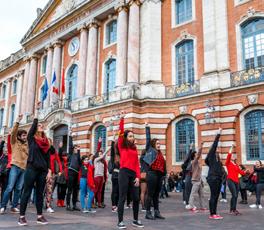
6 minute read
AUP HIGHLIGHTS Alumni
Changing Global Narratives About African Cinema
Nadira Shakur ’04 originally aspired to become a surgeon, but a fainting incident during a high school internship prompted a change in direction. That shift led her toward a global career in communications, film and media.
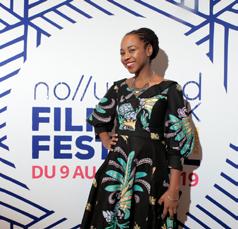
After earning her BA in International Communications from AUP, she went on to live and work in the US, Brazil, the Ivory Coast and Kenya all while supporting African filmmakers and helping broaden international perspectives on African cinema along the way.
In 2013, Shakur co-founded the NollywoodWeek Film Festival in Paris, dedicated to showcasing Nigerian films. Held annually at the L’Arlequin cinema, the festival has gained the support of many of Nigeria’s top filmmakers and artists. Alongside her husband Serge Noukoue, she also co-founded Okada Media, a company focused on expanding opportunities for African filmmakers and reducing barriers to entry in the industry.
“When we understood the power of the image—and also the power of controlling that image, it became our main mission to find ways to do our part to broaden those images, break some of those stereotypes and give voice to new narratives.
From the start, Shakur and Noukoue understood that a small number of decision-makers often determined which films reached global audiences. Through Okada Media, they aim to support African creatives in telling their own stories and sharing them with the world.
Framing the World through Visual Stories
As Senior Photo Assignment Editor at The Washington Post, Olivier Laurent ’05 helps shape the way audiences around the world see and understand global events. From conflict zones to cultural movements, he collaborates with photographers to craft powerful visual stories that capture the depth and complexity of human experience.
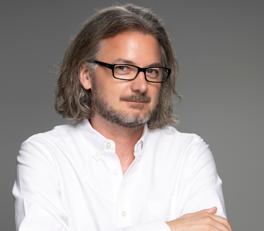
Laurent’s interest in visual journalism took root at AUP, where he studied International Communications. His time in Paris sharpened his awareness of international issues—an outlook that would go on to guide his work at TIME, The New York Times and now The Washington Post.

A turning point in his career came during coverage of the 2015 Paris terror attacks. His ability to help document such a charged and emotional moment with sensitivity and clarity underscored the role of visual media in public understanding.
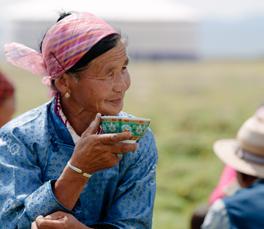
Today, Laurent, who was recently named among the 100 most influential people in photography by Blind Magazine, continues to lead international photo coverage for The Washington Post by guiding photographers in capturing stories that reinforce the power of photography to connect us to each other across borders.
From the Berlin Wall to Page One
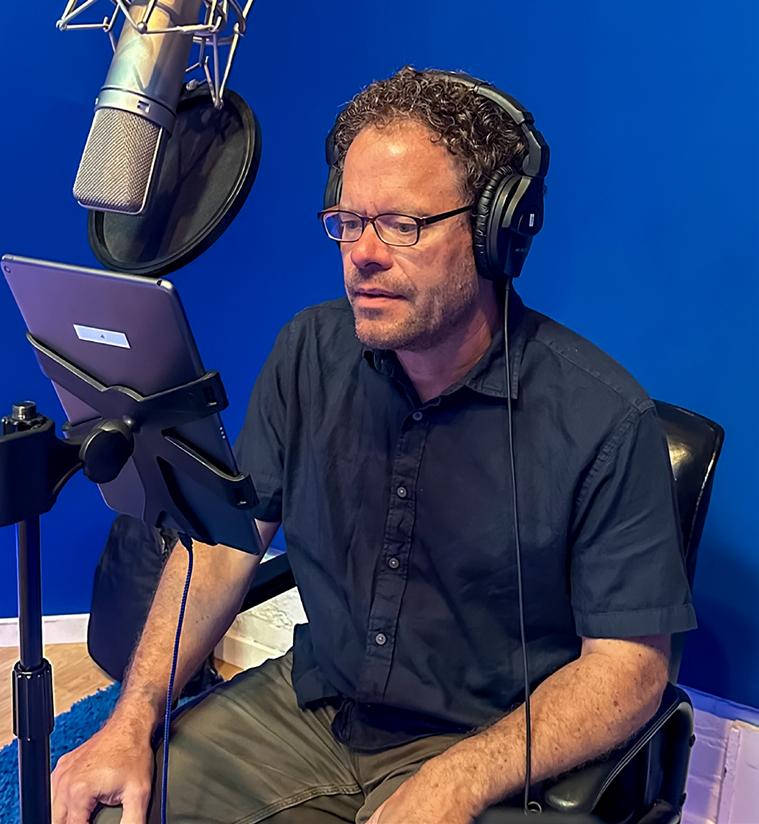
In 1989, while studying at AUP, Thomas Fuller ’92 learned from a classmate that the Berlin Wall was coming down. He immediately bought a plane ticket to Germany. At the airport, a security guard questioned the hammer in his luggage. “It’s for the wall,” he explained, and the guard waved him through. At that moment, Fuller felt part of history. “That’s what AUP is about,” he says.
That formative moment sparked a career in international reporting that has taken Fuller across the globe. Born in New York to a French mother, he grew up visiting France each year and knew early on that his path would be international. AUP offered the perfect bridge between his cultural roots and his growing interest in global affairs.

Over the next two decades, Fuller became a leading authority on Southeast Asia, serving as a foreign correspondent for The New York Times in Bangkok and covering everything from political uprisings to natural disasters. In 2016, he returned to the U.S. to become the paper’s San Francisco Bureau Chief and later a Page One Correspondent.
Through his reporting, Fuller has chronicled moments of deep social and political change. His work continues to reflect the curiosity and global mindset that first brought him to Paris— and to AUP.
Building Careers and Breaking Barriers
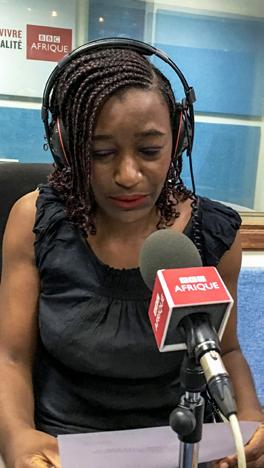
Growing up in France as the daughter of Congolese immigrants, Rose-Marie BouboutouPoos G ’08 has worked to overcome personal and professional challenges and build a global career as a journalist, entrepreneur and coach committed to empowering others.
After her dual master’s degree at the Institut Catholique de Paris and AUP in International Affairs, she launched into international diplomacy and human rights by working for UNESCO, the United Nations and the human rights organization Tostan International. While assisting an African art gallery and library tied to Les Dépêches de Brazzaville, Bouboutou-Poos fell in love with journalism and began writing for prominent outlets such as Les Echos and Jeune Afrique before securing a pivotal role at BBC News in Dakar, where she expanded into radio and television broadcasting.
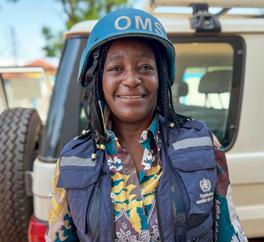
Following a communications role at the World Health Organization and agricultural consulting in Dakar, Bouboutou-Poos recently returned to Paris and began a new initiative that would scale her impact from individuals to organizations. Her new business, JobJourney, is a site that helps international companies expand their market presence and supports employees through professional development.
Founding a Better Way to “Stay”
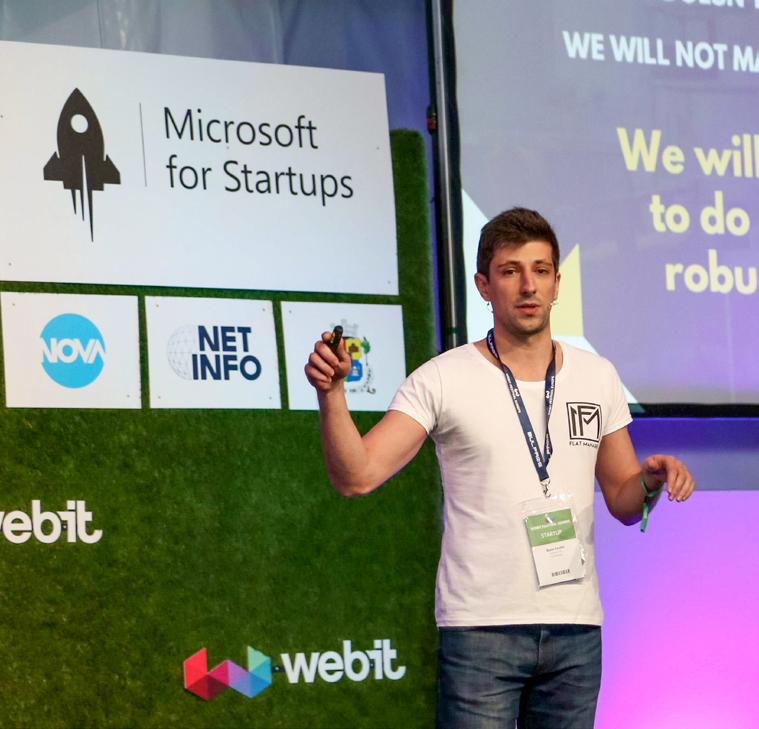
Boris Pavlov ’10 is no stranger to taking risks. From relocating to countries he had never visited to founding businesses in unfamiliar industries, the former investment banker has built a career on bold self-directed choices.
His latest venture, Flataway, launched in October 2024 and is reimagining the vacation rental space. Unlike large online travel agencies, Flataway operates on a decentralized model that empowers property managers to build direct relationships with guests and earn commissions on bookings. The platform features only professionally managed properties and offers quality assurance and discounted rates to travelers.
Beyond business innovation, Flataway also integrates social impact by reinvesting a portion of revenue into community initiatives—part of Pavlov’s broader commitment to ethical entrepreneurship.
That same spirit was evident in 2022, when Pavlov paused his work to respond to the refugee crisis following Russia’s invasion of Ukraine. In partnership with the Bulgarian government and a network of volunteer IT professionals, he helped build an online resource platform to assist displaced Ukrainians navigating resettlement.
From digital hospitality to humanitarian aid, Pavlov continues to apply his entrepreneurial instincts to create solutions that connect and support people across borders.

